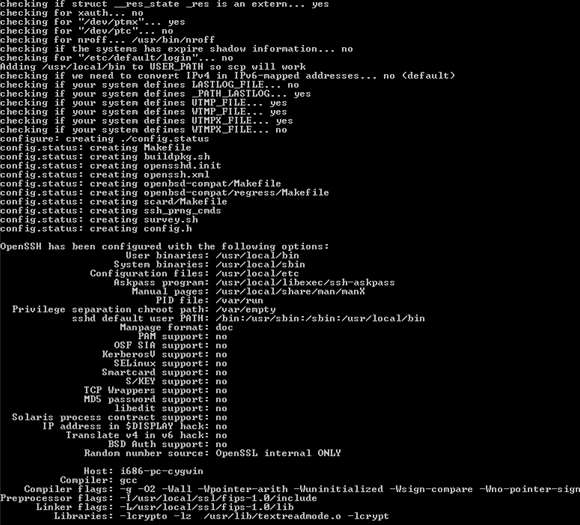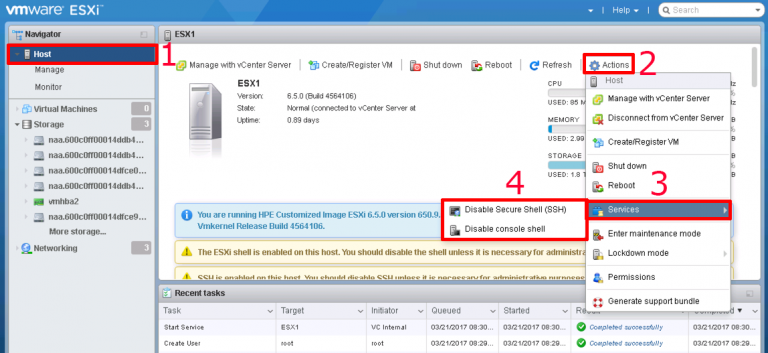Openssh 6.5
I have a new (first time) CentOS 6.5 server being used for a web server. Tiger woods pga tour for mac. Our security team has identified the following weakness: The SSH server is configured to allow either MD5 or 96-bit MAC algorithms, both of which are considered weak. OpenSSH will begin to install and configure itself for your system. At this point, openssh is setup and configured for your system. To try this out, open up a command prompt (cmd.exe) and try: ssh -v (For OpenSSH 6.3 and below) ssh -V (For OpenSSH 6.4 and above).


Introduction into Ed25519

OpenSSH 6.5 added support for Ed25519 as a public key type. It is using an elliptic curve signature scheme, which offers better security than ECDSA and DSA. At the same time, it also has good performance. This type of keys may be used for user and host keys. With this in mind, it is great to be used together with OpenSSH. In this article, we have a look at this new key type.
DSA or RSA
Many forum threads have been created regarding the choice between DSA or RSA. DSA is being limited to 1024 bits, as specified by FIPS 186-2. This is also the default length of ssh-keygen. While the length can be increased, it may not be compatible with all clients. So it is common to see RSA keys, which are often also used for signing. With Ed25519 now available, the usage of both will slowly decrease.
Configuring the server
The first thing to check is if your current OpenSSH package is up-to-date. You will need at least version 6.5 of OpenSSH.
Create SSH host keys
Change SSH configuration (server)
Network scanner for mac. Next step is changing the sshd_config file. Add the new host key type:
HostKey /etc/ssh/ssh_host_ed25519_key
Remove any of the other HostKey settings that are defined.
Client Configuration
After configuring the server, it is time to do the client. We have to create a new key first. Make sure that your ssh-keygen is also up-to-date, to support the new key type. Note: the tilde (~) is an alias for your home directory and expanded by your shell.
Optional step: Check the key before copying it.
ssh-keygen -l -f ~/.ssh/id_ed25519
If that looks good, copy it to the destination host.
ssh-copy-id -i ~/.ssh/id_ed25519.pub michael@192.168.1.251
Then determine if we can log in with it.
$ ssh -i ~/.ssh/id_ed25519 michael@192.168.1.251 Enter passphrase for key ‘~/.ssh/id_ed25519’:
When using this newer type of key, you can configure to use it in your local SSH configuration file (~/.ssh/config). Defining the key file is done with the IdentityFile option.

Host [name]
HostName [hostname]
User [your-username]
IdentityFile ~/.ssh/id_ed25519
IdentitiesOnly yes
Openssh 6.5 Download
Insight: using -o
Normally you can use the -o option to save SSH private keys using the new OpenSSH format. It uses bcrypt/pbkdf2 to hash the private key, which makes it more resilient against brute-force attempts to crack the password. Only newer versions (OpenSSH 6.5+) support it though. For this key type, the -o option is implied and does not have to be provided. Also, a bit size is not needed, as it is always 256 bits for this key type.
Are you already using the new key type? Or other tips for our readers? Leave a comment.
Newsletter
Subscribe to our Threatpost Today newsletter
Join thousands of people who receive the latest breaking cybersecurity news every day.

Openssh 6.5 -
The administrator of your personal data will be Threatpost, Inc., 500 Unicorn Park, Woburn, MA 01801. Detailed information on the processing of personal data can be found in the privacy policy. In addition, you will find them in the message confirming the subscription to the newsletter. Backup device for mac.
Infosec Insider Post
Infosec Insider content is written by a trusted community of Threatpost cybersecurity subject matter experts. Each contribution has a goal of bringing a unique voice to important cybersecurity topics. Content strives to be of the highest quality, objective and non-commercial.
Sponsored Content
Centos 6.5 Openssh 7.4
Sponsored Content is paid for by an advertiser. Sponsored content is written and edited by members of our sponsor community. This content creates an opportunity for a sponsor to provide insight and commentary from their point-of-view directly to the Threatpost audience. The Threatpost editorial team does not participate in the writing or editing of Sponsored Content.
